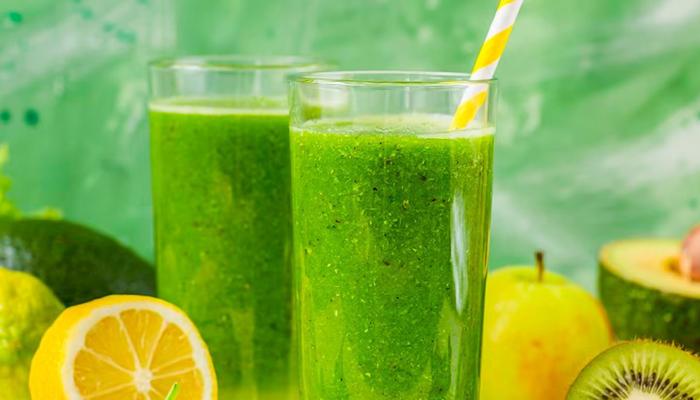Unveiling the Truth About Detox Diets: Dive into the science and myths behind these trendy cleanses. Find out more!
In the bustling landscape of health and wellness, "detox diets" have become a recurring
trend, promising quick fixes and miraculous transformations.

From juice cleanses to restrictive eating plans, these diets often claim to eliminate toxins from the body, leading to weight loss, increased energy, and improved overall health.
But before you jump on the detox bandwagon, it's crucial to understand the science behind these claims and separate the hype from reality. Are detox diets truly effective, or are they simply another fad preying on our desire for instant gratification?
Let's delve into the truth about detox diets, exploring their potential benefits, risks, and what you need to know to make informed decisions about your health.
It's important to understand that our bodies are naturally designed to eliminate waste and harmful substances and we must avoid unproven and dangerous practices.
Our bodies naturally detoxify without need for special diets
Detoxification is a process that our bodies perform naturally to clear out toxins and harmful substances. Our liver, kidneys, digestive system, and skin work together tirelessly to neutralise and eliminate waste products through urine, faeces, sweat, and breath.
These organs have evolved over millions of years to efficiently handle the regular exposure to toxins from the environment, food, and even internal metabolic processes.
When we talk about "detox diets," it's often implied that these systems are not working adequately and require external intervention. However, in most healthy individuals, these organs are perfectly capable of performing their detoxifying functions without the need for special diets or products.
A balanced diet rich in fruits, vegetables, and water, coupled with regular exercise and adequate sleep, is often sufficient to support our body's natural detoxification process.
Detox diets offer quick fixes but lack essential nutrients for long-term health
The allure of detox diets lies in their promise of rapid weight loss, increased energy levels, and glowing skin. These diets often involve drastic calorie restriction, eliminating certain food groups, or relying solely on juices, smoothies, or herbal supplements.
While some people may experience temporary weight loss on these diets, it's primarily due to water loss and reduced calorie intake rather than actual fat loss.
Additionally, the initial boost of energy may be a result of the sudden influx of vitamins and minerals, but it's often followed by fatigue and nutrient deficiencies.
Moreover, many detox diets lack essential nutrients like protein and healthy fats, which are crucial for maintaining muscle mass, hormonal balance, and overall well-being. In the long run, these diets can be unsustainable and may even lead to rebound weight gain and other health complications.
Detox diets often lack scientific basis, may harm health
Many promoted detox diets are built upon the concept of 'toxins' that are never specifically identified. This might relate to a built up of chemicals in the body. Often the products don't support the idea that there will be a cleanse based on how the body actually works.

Many of these diets promote excessive fasting or excessive amounts of fibre. The liver and kidneys are responsible for detoxifying our systems. The liver filters the blood to remove toxins and the purpose of the kidneys is to remove waste and extra fluid from the body.
If any one of these processes fail, the health can be seriously affected, and this would lead to a need for hospitalization. Always check with your doctor before starting any new detox lifestyle or diet.
Detox diets risk nutrient deficiencies, harmful for health conditions
One of the major risks associated with detox diets is the potential for nutrient deficiencies. When you restrict your intake of certain food groups or rely solely on juices or smoothies, you may miss out on essential vitamins, minerals, protein, and healthy fats.
These nutrients are crucial for maintaining various bodily functions, including immune system function, hormone production, and cell repair. Prolonged nutrient deficiencies can lead to fatigue, weakened immunity, muscle loss, and other health problems.
Additionally, detox diets can be particularly risky for individuals with underlying health conditions, such as diabetes, kidney disease, or eating disorders. They can also interfere with certain medications.
It's essential to consult with a healthcare professional before starting any detox diet, especially if you have any pre-existing health conditions.
Adopting healthy habits for natural detox and wellness
Instead of relying on quick-fix detox diets, a more sustainable and effective approach to detoxification involves adopting a healthy lifestyle that supports your body's natural processes. This includes eating a balanced diet rich in fruits, vegetables, whole grains, and lean protein.

These foods provide essential nutrients and antioxidants that help protect your cells from damage and support liver and kidney function. Drinking plenty of water is also crucial for flushing out waste products and keeping your body hydrated.
Regular exercise helps improve circulation and promotes sweating, which is another way your body eliminates toxins. Getting enough sleep is also essential for allowing your body to repair and regenerate.
By incorporating these healthy habits into your daily life, you can support your body's natural detoxification process and maintain your overall health and well-being in the long run.
Talk to your doctor or a registered dietitian for a personalized plan to achieve overall better health and wellness.














